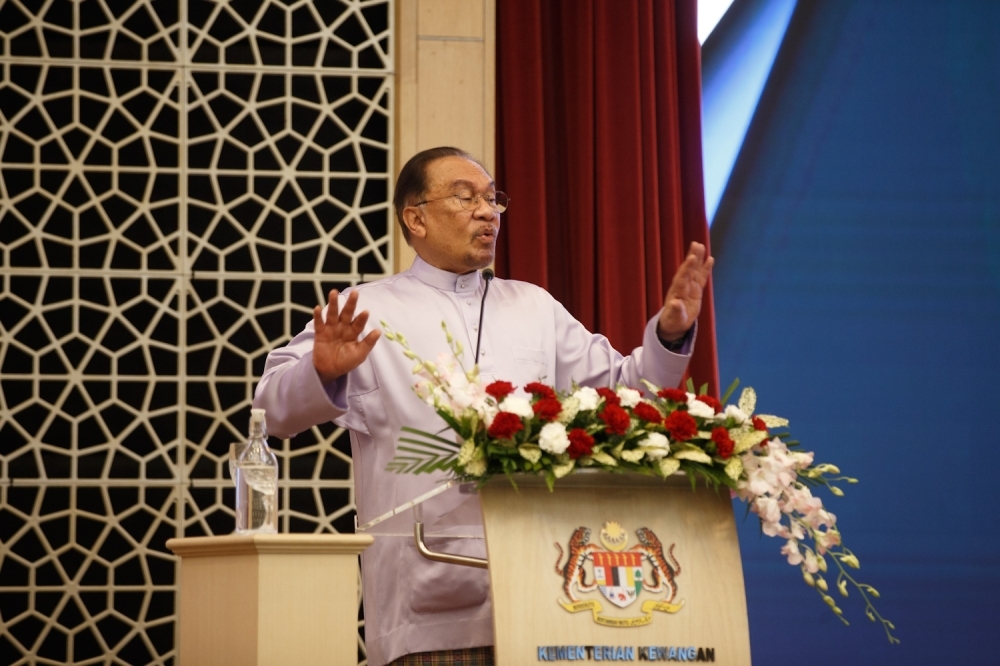
Anwar: 300L Budi95 allocation more than what 98pc of Malaysians use

Prime Minister Datuk Seri Anwar Ibrahim addresses Ministry of Finance staff during a monthly gathering in Putrajaya on Sept 24, 2025. — Picture by Raymond Manuel
Friday, 26 Sep 2025 9:36 AM MYT
PUTRAJAYA, Sept 26 — Prime Minister Datuk Seri Anwar Ibrahim today defended Putrajaya’s decision on a monthly 300L allocation under the Budi95 targeted fuel subsidy scheme, saying it was based on usage data covering the vast majority of Malaysians.
He said surveys conducted over the past two months showed that while the average consumption among motorists was around 150L, data confirmed that 98 per cent of Malaysians used no more than 220L per month.
Anwar explained that the government had initially considered a 250L cap, which was already a significant buffer over the average usage.
However, he decided to raise the limit further to ensure the scheme would be well received and to avoid creating issues for the small number of people who might exceed the lower threshold.
“But when it was discussed with the Cabinet, I said, ‘never mind, if there are those who use more than 250, just allow it first so it doesn’t become an issue.’ That’s why it was raised to 300L,” he said in his speech to Finance Ministry staff here.
The Budi95 scheme, which will be implemented nationwide on Sept 30, allows eligible Malaysians to buy subsidised RON95 petrol at RM1.99 per litre up to 300L a month, after which the unsubsidised retail price — currently set at RM2.60/L — will apply.
Detractors have used the 300L allocation to criticise the reform, using hypothetical scenarios of monthly usage above 500L that they claimed would be burdensome to them.
Based on manufacturers’ data, compact cars like the Perodua Axia or Proton Iriz could reach approximately 5,100 to 5,700km on the 300L allocation. This translates to roughly 170–190km of daily driving, more than enough for most urban commuters.
For mid-sized sedans and SUVs like the Honda Civic or Proton X70, the 300L allocation would still provide a monthly range of approximately 3,600 to 4,500km, or 120–150km daily.
No comments:
Post a Comment